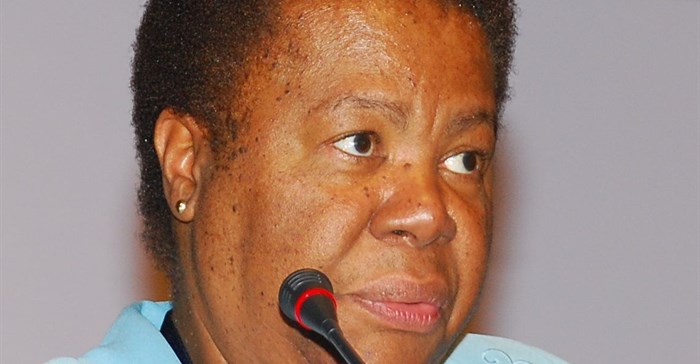
Top stories






LifestyleWhen to stop Googling and call the vet: Expert advice on pet allergies from dotsure.co.za
dotsure.co.za 2 days
More news
























South Africa is also committed to protecting the planet for future generations to ensure the prosperity of the country, region and continent, said International Relations and Cooperation Minister Naledi Pandor, during a virtual lecture themed South Africa’s place in the changing global order' delivered at the Wits School of Governance.
The pandemic, she said, has added a significant new dimension to international relations for countries, resulting in major economic contraction that has altered every aspect of life and livelihoods.
Pandor said in the face of the challenging global order, South Africa is guided by its national interest, which has in turn shaped its foreign policy.
“In broad brushstrokes, South Africa’s national interest revolves on promoting the well-being, socio-economic development and upliftment of the country’s people, protecting the planet for future generations and ensuring the prosperity of the country, region and continent.”
This framework of South Africa’s national interest underpins its foreign policy, which is driven by the pursuit of human rights, development, conflict resolution, nuclear disarmament, climate change and championing the agenda of the countries of the South.
“In pursuit of these strategic goals, South Africa seeks to reposition itself as a consistent moral compass and a principled voice of reason in a changing world that is increasingly characterised by selfish and narrow interests,” Pandor said.
The minister said South Africa’s position is affected by its normative approach, which can largely be considered as driven by the founding values and provisions enshrined in its Constitution, and based on its history of overcoming apartheid and, importantly, its relatively peaceful transition to democracy and efforts at reconciliation.
It is these values that have resulted in South Africa being a consistent voice in solidarity with the people of Palestine and Saharawi, and commitment to peace in Africa and the Middle East.
Pandor said the outbreak is compounding an already fluid global geopolitics, where some of the dominant Western States are seen to be opting for foreign policies, which undermine the stability of the inter-State system, as they face draining counter-claims to global influence from emerging powers.
This, Pandor said, throws up massive repercussions for the existing balance of forces.
“Africa should be concerned that as we discuss shifting global forces, the continent remains on the margins, observing rather than reshaping,” she said, adding that the continent needs to use the current crisis to define a new relationship with the world, based on African terms.
“There are other objective developments shaping the international scenario, including the Fourth Industrial Revolution, the impact of Brexit on the global economy, the rise of anti-immigrant nationalism in the European Union (EU) zone and US, and increased terrorism and extremism activities worldwide.”
In terms of the broader global approach, South Africa continues to defend multilateralism, the rules based multilateral system and the reform of global institutions of governance, which underpin the global power asymmetry.
South Africa also deploys efforts to strengthen the G77 and the Non-Alignment Movement, as well as other multilateral agencies.
This is done within the context of Pan-Africanism, where South Africa is building strategic alliances with other countries on the continent in pursuance of common objectives.
These alliances start with Southern African Development Community (SADC) countries and then include other countries in the rest of the continent. The integration of SADC is critical for the region’s economic development and for South Africa’s global competitiveness.
“Beyond the SADC region, South Africa was able to advance the African Renaissance agenda when there were close relations and exchanges with Nigeria, Algeria, Ethiopia and Senegal, which led to the drafting and then adoption of the New Partnership for Africa’s Development (Nepad),” Pandor said.
South Africa, she said, is aware that the world is not monolithic and the normative aspects of the country’s positioning could run counter to certain geographical, developmental or economic partners, such as with regard to respect for human rights and democratic values.
“These nuances need to be taken into consideration when finally deciding South Africa’s approach to specific issues, notwithstanding the need to be guided by South Africa’s identity and values in the international system. Ultimately, pragmatism and idealism need to be balanced on a case by case basis,” said the Minister.
In this regard, South Africa aims to continue to advocate for the strengthening of the key pillars of the African Peace and Security Architecture (APSA).
SAnews.gov.za is a South African government news service, published by the Government Communication and Information System (GCIS). SAnews.gov.za (formerly BuaNews) was established to provide quick and easy access to articles and feature stories aimed at keeping the public informed about the implementation of government mandates.
Go to: http://www.sanews.gov.za